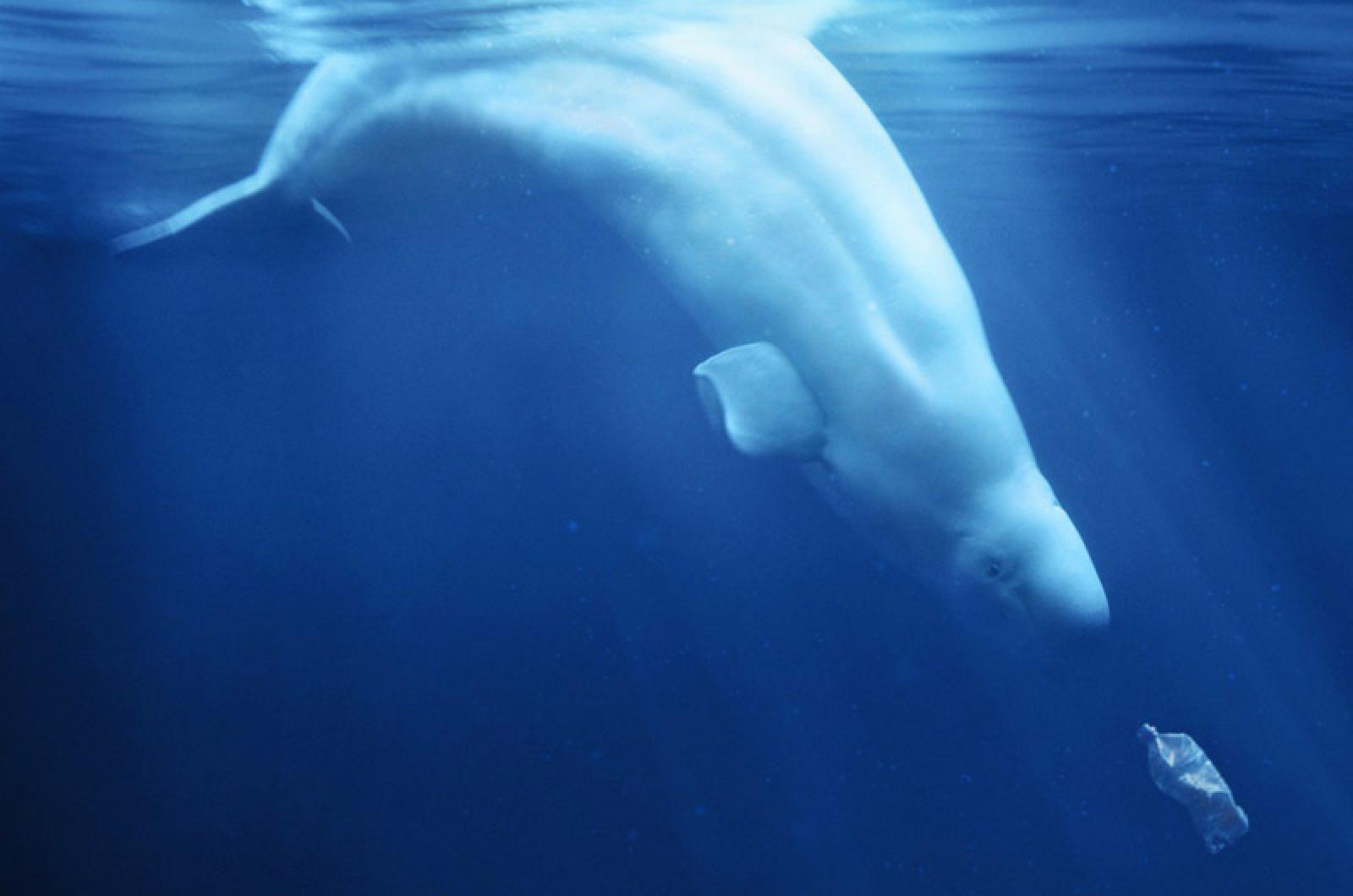The Island community is well-versed in the threat plastic waste poses to the surrounding ocean. Efforts to reduce waste include a plastic bag ban in five of the six towns and a student group rallying for the elimination of plastic straws. A Plastic Ocean, a documentary film showing at the film center on Thursday, Jan. 19 shows plastic waste in the ocean is not just an Island problem, but a global one.
The documentary follows a team of ocean adventurers and researchers as they travel the world uncovering the effects of plastic in the oceans. Produced over four years and filmed in 20 locations, the documentary not only attempts to capture the depth of the problem, it offers solutions.
A sunglasses company, a film society and a conservation group teamed up to bring the documentary to the Vineyard. A Plastic Ocean will screen on Thursday, Jan. 19 at 7 p.m. at the Martha’s Vineyard Film Center in Vineyard Haven followed by a Q and A session.
Film center director Richard Paradise said he’s wanted to bring A Plastic Ocean to the Vineyard since the society’s Environmental Film Festival last spring. When the timing didn’t work out then, he secured the film for its general release this month. He said the film is more than just a crusade against waste.
“The cinematography is key in any film about the ocean,” he said. “The underwater cinematography and the above-water aerial view of the water is amazing.”
Even if viewers attended just for the scenic shots, it is nearly impossible to walk out of the theatre without being newly acquainted with the problem of plastics, Mr. Paradise said. “They tell a convincing story of the problems we have at sea. And for the most part people don’t see it. Because it’s underwater.”
But in a movie theatre, where the man-made dangers that lurk underwater affecting sea life and human life are magnified, the issue is only too easy to see.
Producer Jo Ruxton got the idea for A Plastic Ocean after she visited the Great Pacific Garbage Patch, a mass of marine debris caught in swirling currents 1,500 miles off the coast of San Francisco. Instead of tangible pieces of plastic floating on the ocean surface, Ms. Ruxton learned the garbage patch mainly contains micro particles of plastic. Though the particles may not be visible to the naked eye, the effects are wide-reaching. Guided by a variety of activists and experts, A Plastic Ocean looks at the problem of plastic pollution in the ocean and how it affects the world.
The sponsors of the screening hope for more than just increased awareness.
“Any good documentary will not just lay out a problem, it will offers some solutions,” said Mr. Paradise.
Two of the cosponsors, Vineyard Conservation Society and sunglasses company Norton Point, do just that. Last year, VCS helped draft and pass plastic bag bans in five of the six Vineyard towns. The bans went into effect at the beginning of this year. Mr. Paradise said he immediately thought of VCS and the plastic bag ban when he decided to show the film.
“We’ve all seen bags floating in the air, like a balloon from the hand of a small child,” he said. On an island, it’s only a short trip for that bag to end up in the ocean.
Norton Point is a Vineyard-based sunglasses company founded by Rob Ianelli and Ryan Schoenike that uses rescued sea plastics to produce a sunglasses line called Sea Plastic Differently. But they know it will take a lot more than one sunglasses company to clean the oceans.
“The problem is most people and companies don’t see value in the product,” said Mr. Schoenike. “Ocean plastic is really viewed as trash.”
At Norton Point, however, the plastic milk jugs and orange juice bottles floating in the ocean are far from trash; they are the ideal material for classic frames. Sunglasses, Mr. Schoenike continued, were a great initial driver for reusing ocean plastics because they are often a conversation starter and they relate back to the ocean.
Norton Point not only helps clean up the ocean, they also reduce the overall amount of new plastic produced by working with recycled materials. As Mr. Paradise sees it, reducing the amount of new plastic produced is necessary to reducing the plastic in the oceans.
“Yes, you can take plastic and recycle it or reform it, but that plastic pellet will never disappear,” said Mr. Paradise.
A Plastic Ocean screens on Thursday Jan. 19 at the Film Center at 7:30 p.m. Tickets cost $12 for members and $15 for nonmembers. A portion of the proceeds will go to VCS. Attendees will receive a discount code for Norton Point.





Comments
Comment policy »